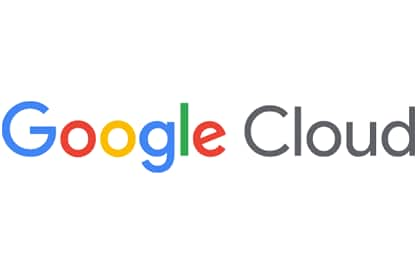Why OpenText
Why OpenText
Overview Why OpenText
OpenText brings decades of expertise to help you unlock data, connect people and processes, and fuel AI with trust
Manage and connect data
Unify data seamlessly across your enterprise to eliminate silos, improve collaboration, and reduce risks
AI-ready information
Get AI-ready and transform your data into structured, accessible, optimized information
Built-in security and compliance
Meet regulatory and compliance requirements and protect your information throughout its lifecycle
Empowering people
Overview Empowering people
OpenText helps people manage content, automate work, use AI, and collaborate to boost productivity
Customers
See how thousands of companies around the world are succeeding with innovative solutions from OpenText
Employees
Our people are our greatest asset; they are the life of the OpenText brand and values
Corporate Responsibility
Learn how we aspire to advance societal goals and accelerate positive change
Partners
Find a highly skilled OpenText partner with the right solution to enable digital transformation
How we compare
Content Management
Service Management
Deploy anywhere
Overview Deployment options
Explore scalable and flexible deployment options for global organizations of any size
Sovereign cloud
Local control. Global scale. Trusted AI
Private cloud
Your cloud, your control
On-premises
Free up resources, optimize performance and rapidly address issues
Public cloud
Run anywhere and scale globally in the public cloud of your choice
AI leadership
Overview Aviator AI
See information in new ways
OpenText™ Aviator AI
AI that understands your business, your data, and your goals
OpenText™ MyAviator
Say hello to faster decisions. Your secure personal AI assistant is ready to get to work
OpenText™ Business Network Aviator
Gain better insights with generative AI for supply chains
OpenText™ Content Aviator
Power work with AI content management and an intelligent AI content assistant
OpenText™ Cybersecurity Aviator
Improve your security posture with AI cybersecurity and agile threat detection
OpenText™ DevOps Aviator
Enable faster app delivery, development, and automated software testing
OpenText™ Experience Aviator
Elevate customer communications and experiences for customer success
OpenText™ Service Management Aviator
Empower users, service agents, and IT staff to find the answers they need
Aviator AI
Overview Aviator AI
See information in new ways
OpenText™ Aviator AI
AI that understands your business, your data, and your goals
OpenText™ MyAviator
Say hello to faster decisions. Your secure personal AI assistant is ready to get to work
OpenText™ Business Network Aviator
Gain better insights with generative AI for supply chains
OpenText™ Content Aviator
Power work with AI content management and an intelligent AI content assistant
OpenText™ Cybersecurity Aviator
Improve your security posture with AI cybersecurity and agile threat detection
OpenText™ DevOps Aviator
Enable faster app delivery, development, and automated software testing
OpenText™ Experience Aviator
Elevate customer communications and experiences for customer success
OpenText™ Service Management Aviator
Empower users, service agents, and IT staff to find the answers they need
Analytics
Overview Analytics
Predict, act, and win with real-time analytics on a smarter data platform
OpenText™ Aviator Search(AI)
Give users access to the answers they need, faster and easier, with multi-repository AI-based search that lets you contextualize everything from clicks to conversations
Business Network
Overview Business Network
Connect once, reach anything with a secure B2B integration platform
Content
Overview Content
Reimagine knowledge with AI-ready content management solutions
OpenText™ Content Aviator(AI)
Supercharge intelligent workspaces with AI to modernize work
Cybersecurity
Overview Cybersecurity
Integrated cybersecurity solutions for enterprise protection
OpenText Cybersecurity for SMBs & MSPs
Purpose built data protection and security solutions
OpenText™ Cybersecurity Aviator(AI)
Reinvent threat hunting to improve security posture with the power of agile AI
DevOps
Overview DevOps
Ship better software—faster—with AI-driven DevOps automation, testing, and quality
Experience
Overview Experience
Reimagine conversations with unforgettable customer experiences
Observability and Service Management
Overview Observability and Service Management
Get the clarity needed to cut the cost and complexity of IT operations
OpenText™ Service Management Aviator(AI)
Redefine Tier 1 business support functions with self-service capabilities from private generative AI
APIs
Overview APIs
Build custom applications using proven OpenText Information Management technology
OpenText™ API Services
Build it your way with OpenText Cloud APIs that create the real-time information flows that enable custom applications and workflows
Device and Data Protection
Overview Device and Data Protection
Protect what matters, recover when it counts
Unified Endpoint Management Tools
- OpenText™ Endpoint Management
- OpenText™ ZENworks Suite
- OpenText™ ZENworks Service Desk
- OpenText™ ZENworks Configuration Management
- OpenText™ ZENworks Endpoint Security Management
- OpenText™ ZENworks Full Disk Encryption
- OpenText™ ZENworks Endpoint Software Patch Management
- OpenText™ ZENworks Asset Management
Solutions
Trusted Data & AI
Overview Trusted Data & AI
Secure information management meets trusted AI
OpenText AI Data Platform
A unified data framework to elevate data and AI trust
OpenText Aviator Studio
A place where you can build, deploy, and iterate on agents in your data's language
OpenText Discovery
A set of tools to help ingest data and automate metadata tagging to fuel AI
OpenText Data Compliance
A suite of services and APIs that make governance proactive and persistent
OpenText Aviator AI Services
Professional services experts who help you on your AI journey
Information Reimagined
Overview Information Reimagined
Get greater visibility and sharper insights from AI-driven information management. Ready to see how?
Knowledge reimagined
Transform daily work with enterprise content management powered by AI
Service Management reimagined
Cut the cost and complexity of IT service management, AIOps, and observability
Connections reimagined
AI-powered B2B integration for supply chain success
Conversations reimagined
Drive value, growth, and loyalty with connected customer experiences
Engineering reimagined
Agile development and software delivery? It only seems impossible
Security reimagined
Cybersecurity for the Enterprise
Decisions reimagined
Unlock insights with AI data analytics
Artificial Intelligence
Overview Aviator AI
See information in new ways
OpenText™ Aviator AI
AI that understands your business, your data, and your goals
OpenText™ MyAviator
Say hello to faster decisions. Your secure personal AI assistant is ready to get to work
OpenText™ Business Network Aviator
Gain better insights with generative AI for supply chains
OpenText™ Content Aviator
Power work with AI content management and an intelligent AI content assistant
OpenText™ Cybersecurity Aviator
Improve your security posture with AI cybersecurity and agile threat detection
OpenText™ DevOps Aviator
Enable faster app delivery, development, and automated software testing
OpenText™ Experience Aviator
Elevate customer communications and experiences for customer success
OpenText™ Service Management Aviator
Empower users, service agents, and IT staff to find the answers they need
Industry
Overview Industry solutions
Improve efficiency, security, and customer satisfaction with OpenText
Energy and resources
Transform energy and resources operations with cloud, cybersecurity, and AI
Financial services
Boost customer experience, compliance, and efficiency with AI
Government
Reimagine your mission with government-secure information management
Healthcare and life sciences
Improve care delivery and patient engagement with AI-powered solutions
Legal
Modernize legal teams with automated, AI-powered legal tech solutions
Manufacturing
Modernize manufacturing operations and logistics to reduce costs and ensure compliance
Retail and consumer goods
Enhance consumer engagement with omnichannel retail solutions and AI
Enterprise Application
Overview Solutions for Enterprise Applications
Run processes faster and with less risk
Services
Services
Overview Services
Achieve digital transformation with guidance from certified experts
Professional Services
Modernize your information management with certified experts
Customer Success Services
Meet business goals with expert guidance, managed services, and more
Support Services
Turn support into your strategic advantage
Managed Services
Free up your internal teams with expert IT service management
Learning Services
Discover training options to help users of all skill levels effectively adopt and use OpenText products
Professional Services
Overview Professional Services
Modernize your information management with certified experts
Customer Success Services
Overview Customer Success Services
Meet business goals with expert guidance, managed services, and more
Support Services
Overview Support Services
Turn support into your strategic advantage
Managed Services
Overview Managed Services
Free up your internal teams with expert IT service management
Learning Services
Overview Learning Services
Discover training options to help users of all skill levels effectively adopt and use OpenText products
Partners
Find a Partner
Overview Find a partner
Information is the heartbeat of every organization. We build information management software so you can build the future
Cloud Partners
Overview Cloud Partners
OpenText partners with leading cloud infrastructure providers to offer the flexibility to run OpenText solutions anywhere
Enterprise Application Partners
Overview Enterprise Application Partners
OpenText partners with top enterprise app providers to unlock unstructured content for better business insights
Partner Solutions
Overview Partner Solutions
Discover flexible and innovative offerings designed to add value to OpenText solutions
Resources for Partners
Overview Resources for Partners
Discover the resources available to support and grow Partner capabilities
Support
Overview Customer Support
Get expert product and service support to accelerate issue resolution and keep business flows running efficiently
Resources
Overview Resources
Explore detailed services and consulting presentations, briefs, documentation and other resources
Choose your region:
Europe, Middle East and Africa
Asia–Pacific
Accessibility
Overview
Digital inclusion is key to being a socially responsible company, which is why OpenText™ strives to ensure that our solutions, products, and services are accessible by everyone, including people with disabilities. In our efforts to support accessibility, OpenText is guided by accessibility regulations and international standards, including the Accessibility for Ontarians with Disabilities Act (AODA), Section 508 of the United States Workforce Rehabilitation Act, Web Content Accessibility Guidelines (WCAG) (Level A and AA), the US Communication and Video Accessibility Act (CVAA) and EN 301 549, a European standard for digital accessibility.
Product Accessibility Conformance Reports (ACRs)
OpenText utilizes accessibility templates created by the Information Technology Industry Council (ITIC). These templates facilitate reporting of OpenText product’s accessibility conformance against the standards of U.S. Section 508 and international ISO standards using the following templates:
- Voluntary Product Accessibility Template (VPAT)
- Web Content Accessibility Guidelines (WCAG)
Request an OpenText VPAT or WCAG Accessibility Report
Accessible Customer Support
Individuals needing accessible customer support should email Customer Experience with their specific needs so we can better assist them.
Accessibility standards and regulations
Worldwide
Web Content Accessibility Guidelines (WCAG)
The Web Content and Accessibility Guidelines (WCAG) provide a foundation for making web content more accessible to people with disabilities or age-related limitations. WCAG was developed by the World Wide Web Consortium (W3C) and it has been approved as a globally recognized accessibility standard (ISO/IEC 40500:2012).
WCAG v2.0 standards are included within the Voluntary Product Accessibility Template (VPAT) and the ITIC has also created a separate accessibility conformance report specifically for WCAG guidelines.
OpenText includes WCAG reporting within our VPAT accessibility conformance reporting and aims to implement the WCAG guidelines (Level A and AA) to the extent possible in our products.
Canada
Accessibility for Ontarians with Disabilities Act (AODA)
The Accessibility for Ontarians with Disabilities Act created accessibility standards to make goods, services, and facilities accessible to Ontarians with disabilities. The OpenText Multi-Year Accessibility Plan outlines our approach to establish accessibility for persons with disabilities.
United States
U.S. Section 508
Section 508 of the Rehabilitation Act, as amended by the Workforce Investment Act requires federal agencies to develop, procure, maintain and use information and communications technology (ICT) that is accessible to people with disabilities.
In our efforts to support accessibility, OpenText is guided by the best practices and standards set out in the Section 508 amendment to the United States Workforce Rehabilitation Act as outlined in the Voluntary Product Accessibility Template (VPAT) and the Web Content Accessibility Guidelines (WCAG).
U.S. Communications and Video Accessibility Act (CVAA)
The Twenty-first Century Communications and Video Accessibility Act (CVAA) was signed into law in October 2010 and updates federal communications law to increase access for persons with disabilities to modern communication technologies.
OpenText strives to meet CVAA documentation requirements and OpenText provides annual reporting to the FCC as required by CVAA .
European Union
The EN 301 549 Standard defines accessibility requirements for public procurement of ICT products and services in Europe. The standard incorporates the Web Content and Accessibility Guidelines (WCAG) elements as core elements of the standard.
OpenText includes WCAG reporting within our accessibility conformance reporting and aims to implement the WCAG guidelines (Level A and AA) to the extent possible in our products.





